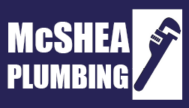McShea Plumbing Premier
Gas Line Installation in Fayetteville
When it comes to gas line repair and installation in Fayetteville, NC, McShea Plumbing stands out with our commitment to safety, efficiency, and reliability. Our certified and experienced plumbers are equipped to handle all your gas line needs, from detecting leaks and conducting repairs to installing new gas lines for appliances or outdoor features. We understand the importance of a properly functioning gas line for the comfort and safety of your home, which is why we offer prompt, thorough service to ensure your system is operating safely and efficiently.
With McShea Plumbing, you can rest assured that your gas line project is in capable hands. Our team not only adheres to the highest industry standards but also stays updated on local regulations and codes to guarantee your gas line system is compliant and secure. Whether you’re upgrading your kitchen with a new gas stove, installing a gas fireplace, or extending your gas line to an outdoor grill, we have the expertise to ensure the job is done right the first time.








